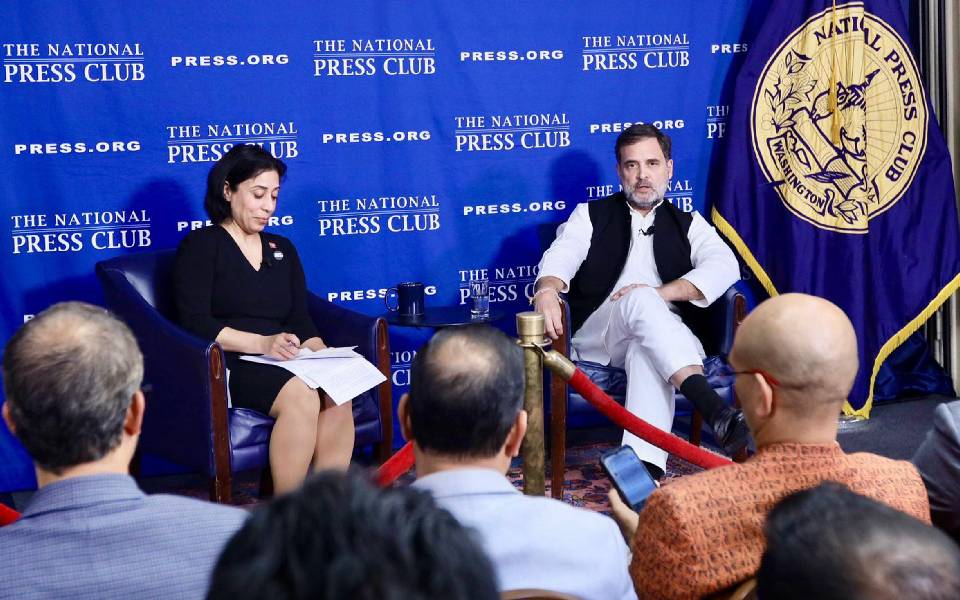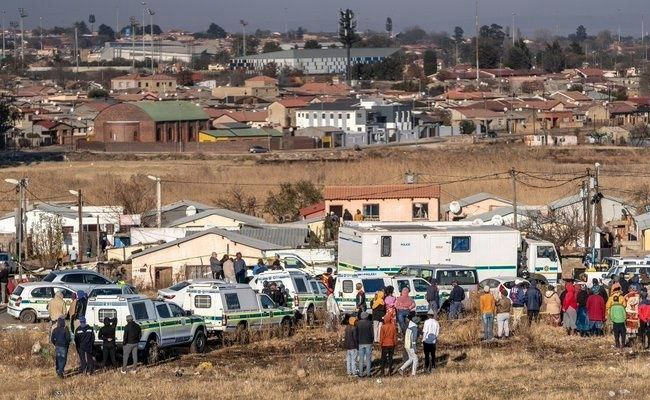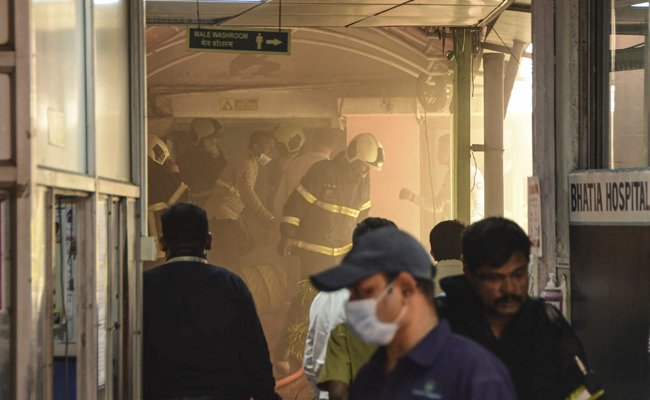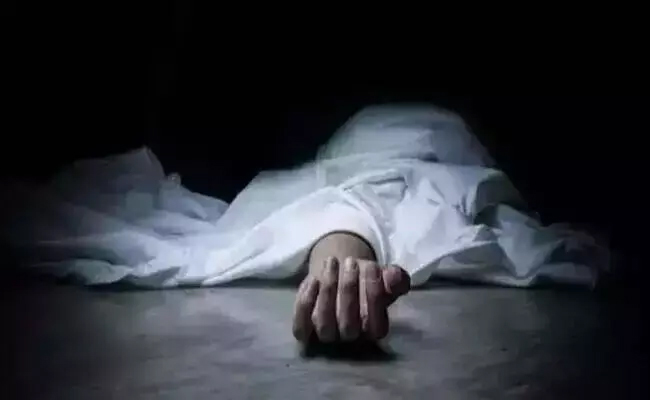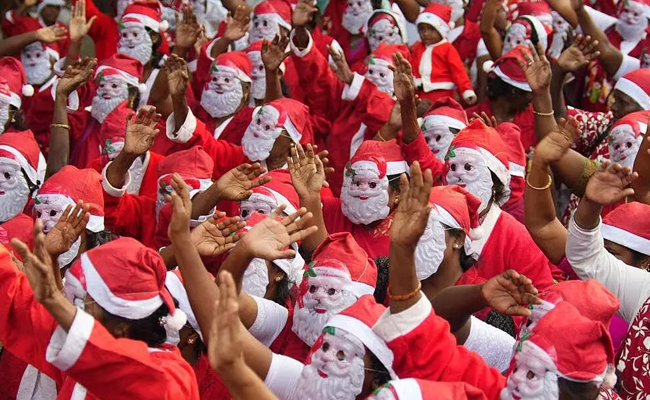Washington, Sep 11: Congress leader Rahul Gandhi has slammed the Narendra Modi government over its handling of the conflict with China, telling reporters here that it is a “disaster” that 4,000 square kilometres of Indian territory is “occupied” by troops from the neighbouring country.
But the Leader of the Opposition indicated that the Congress is in broad agreement with the BJP-led government on other major foreign policy issues, including relations with the US, no talks with Pakistan unless terrorism ends and concerns over extremist elements in Bangladesh.
At a press conference at the prestigious National Press Club on Tuesday, Gandhi also asserted that he did not want any US role the US in India’s internal affairs.
Answering a question about China, he said: “Well, if you call having Chinese troops in 4,000 square kilometres of our territory handling something well, then maybe. We've got Chinese troops occupying land the size of Delhi in Ladakh. I think that's a disaster. Media doesn't like to write about it."
“How would America react if a neighbour occupied 4,000 square kilometres of your territory? Would any president be able to get away with saying that he's handled that well? So, I don't think Modi has handled China well. I think there's no reason Chinese troops should be sitting in our territory,” Gandhi said.
At the press conference, he supported Modi's policies on Pakistan.
“Pakistan's instigation of terrorism in our country is holding the two countries back. We are not going to accept Pakistan carrying out terror acts in our country. We're just not going to accept it. And until they keep doing that, there's going to be problems between us,” Gandhi, who was on an unofficial four-day trip to the US, said.
He said “No” when asked if the Kashmir issue is holding the two South Asian nations away from a dialogue.
Responding to a question on the India-US relationship, Gandhi noted that it has bipartisan support in both countries.
“I don't see a big diversion. I don't see Modi diverting very much from our approach with the US. I don't see ourselves changing direction very much from what he's doing. So, I see continuity there,” he said.
He said everyone accepts the fact that the India-US relationship is key for both countries.
Gandhi asserted that he did not want any role of the US in India’s internal affairs. It is for the people of India to decide.
“The fight for democracy in India is an Indian fight. With all due respect, it has nothing to do with anybody else. It's our problem. And we'll take care of it. We will make sure that democracy is secure,” he said.
“However, it's important to understand that Indian democracy is more than just any normal democracy because of its size. If you're talking about a democratic vision of the world, then Indian democracy has a large space in that vision. I think it's important that the world sees Indian democracy as an asset, not just for India, but for the rest of the world. Advising the United States on how they should deal with Modi is not my preserve, it's not my space,” Gandhi said.
Gandhi criticised the Hamas attack on Israel on October 7 last year but said the scale of violence that ensued must stop.
“Look, I think what happened on the 7th of October was absolutely wrong. But, I also think what Israel did and is doing, bombing innocent civilians, and killing women and children, is absolutely wrong and should not be allowed to continue. I'm against violence of any kind. And certainly, the scale of violence, I actually think, is harming Israel. It's harming Israel more than it's helping them,” Gandhi said.
Responding to a question on Bangladesh, Gandhi said: “There are concerns in India about extremist elements in Bangladesh and we share some of those concerns.”
“However, I'm confident that things will stabilise in Bangladesh and that we would be able to have a relationship with the current government or any other government after that,” he said.
Gandhi had a meeting with a group of lawmakers at the US Capitol where the issue was discussed.
“We raised it (Bangladesh), and they also spoke to us. Look, we are against any type of violence. And we want it to stop. And it's the responsibility, frankly, of the Bangladeshi government to stop it as soon as possible. From our side, it's the responsibility of our government to put pressure so that that violence stops,” Gandhi said.
Let the Truth be known. If you read VB and like VB, please be a VB Supporter and Help us deliver the Truth to one and all.
Johannesburg (AP): A 32-year-old suspect has been arrested in connection with a mass shooting which claimed the lives of 12 people including three children at an unlicensed pub earlier this month, South African police said on Monday.
The man is suspected of being one of the three people who opened fire on patrons in a pub at Saulsville township, west of South Africa's capital Pretoria, killing 12 people including three children aged 3, 12 and 16.
At least 13 people were also injured during the attack, whose motive remains unknown.
According to the police, the suspect was arrested on Sunday while traveling to Botlokwa in Limpopo province, more than 340 km from where the mass shooting took place on Dec 6.
An unlicensed firearm believed to have been used during the attack was recovered from the suspect's vehicle.
“The 32-year-old suspect was intercepted by Limpopo Tracking Team on the R101 Road in Westenburg precinct. During the arrest, the team recovered an unlicensed firearm, a hand gun, believed to have been used in the commission of the multiple murders. The firearm will be taken to the Forensic Science Laboratory for ballistic analysis,” police said in statement.
The suspect was arrested on the same day that another mass shooting at a pub took place in the Bekkersdal township, west of Johannesburg, in which nine people were killed and 10 wounded when unknown gunmen opened fire on patrons.
Police have since launched a search for the suspects.
South Africa has one of the highest homicide rates in the world and recorded more than 26,000 homicides in 2024 — an average of more than 70 a day. Firearms are by far the leading cause of death in homicides.
The country of 62 million people has relatively strict gun ownership laws, but many killings are committed with illegal guns, according to authorities.
According to police, mass shootings at unlicensed bars are becoming a serious problem. Police shut down more than 11,000 illegal taverns between April and September this year and arrested more than 18,000 people for involvement in illegal liquor sales.

